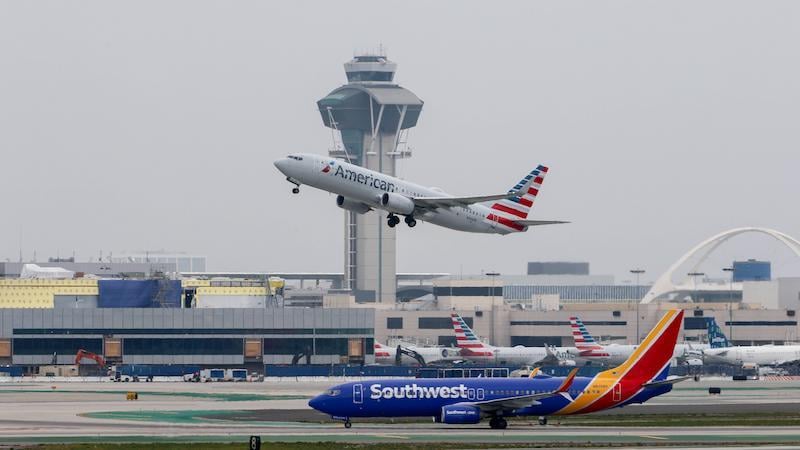
Texas–based carriers American Airlines and Southwest Airlines are revisiting their strategies at two of the state’s airports, Austin and San Antonio.
American will cut four more routes from Austin-Bergstrom International Airport (AUS), after slashing 18 routes from the airport earlier this year. The Dallas Fort Worth (DFW)-based airline has retreated from a post-pandemic push to make Austin, the Texas capital, a key network point with extensive nonstop connections.
The previous round of cuts occurred from January through April. In November, American will drop service from AUS to Boston; Nashville,Tennessee; and Raleigh/Durham, North Carolina. It will discontinue service from AUS to Orange County, California, in January.
An American spokesperson said the route cuts are part of “the continuous evaluation of our network,” adding the airline is “proactively reaching out to impacted customers and apologizes for any inconvenience this may cause.”
American pointed out it will still be offering 20% more peak-day seats at AUS in 2025 than 2019. According to the spokesperson, the airline will continue to operate to all eight of its hubs—Charlotte, North Carolina; Chicago O’Hare; Dallas Fort Worth; Los Angeles; Miami; New York JFK; Philadelphia; and Phoenix—from AUS.
Southwest Dispute
Southwest, meanwhile, is in a dispute with San Antonio International Airport (SAT) over gate assignments and has threatened not to sign a new use and lease agreement at the airport. The current agreement is up at the end of this month.
Southwest had expected to be among the airlines located in the airport’s new 17-gate Terminal C, set to open in 2028. But instead, according to Southwest, SAT has assigned the airline to remain in Terminal A, from which it currently operates.
Southwest said it negotiated the lease agreement with SAT assuming it would move to 10 gates at Terminal C. But the airport is putting the airline in the smaller, older Terminal A. That facility is undergoing renovations, but Southwest said those improvements will be “inadequate to bring Terminal A in line with the experience in Terminal C.”
Southwest said in response to an inquiry that it would have “never agreed” to the new lease agreement if it knew it would be in Terminal A instead of C.
“Southwest does not intend to sign the use and lease agreement in its current form and is reevaluating its future growth plans at San Antonio International Airport,” a Southwest spokesperson said.
Southwest said the airport is favoring American and Delta Air Lines, both of which plan to build premium lounges in Terminal C, which will also include international gates. “SAT is targeting an elite subset of passengers with its gate allocation decision and forcing nearly 40% of its [passengers] into the airport’s smallest space,” a spokesperson said.
Both the airline and airport hope to find a solution. “We will continue to look to the city/airport to provide a mutually agreeable resolution,” Southwest said.
In response to an inquiry, SAT Director Jesus Saenz said: “We value our close and longtime relationship with Southwest Airlines. We are confident we will reach a resolution regarding the airline use and lease agreement in the near future.”
The carrier could continue to operate as a non-signatory carrier at SAT, but the set-up would be an unusual—and more costly—arrangement for Southwest at an airport where it has such a large presence.





